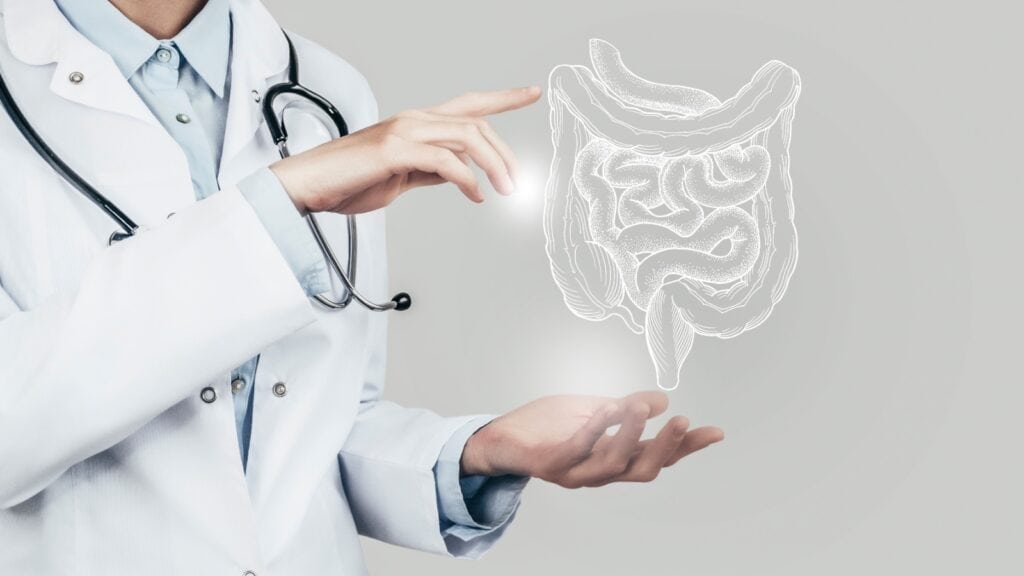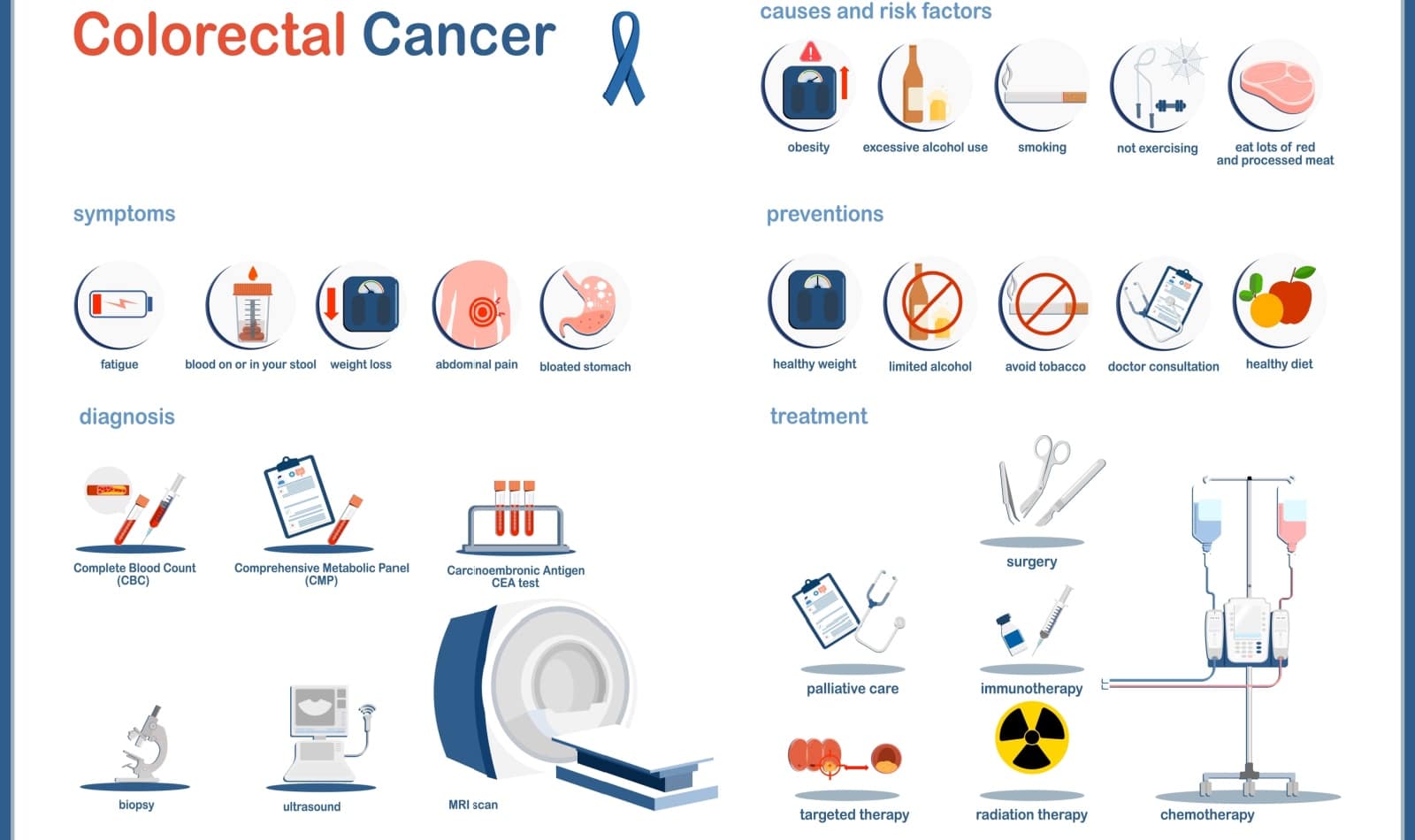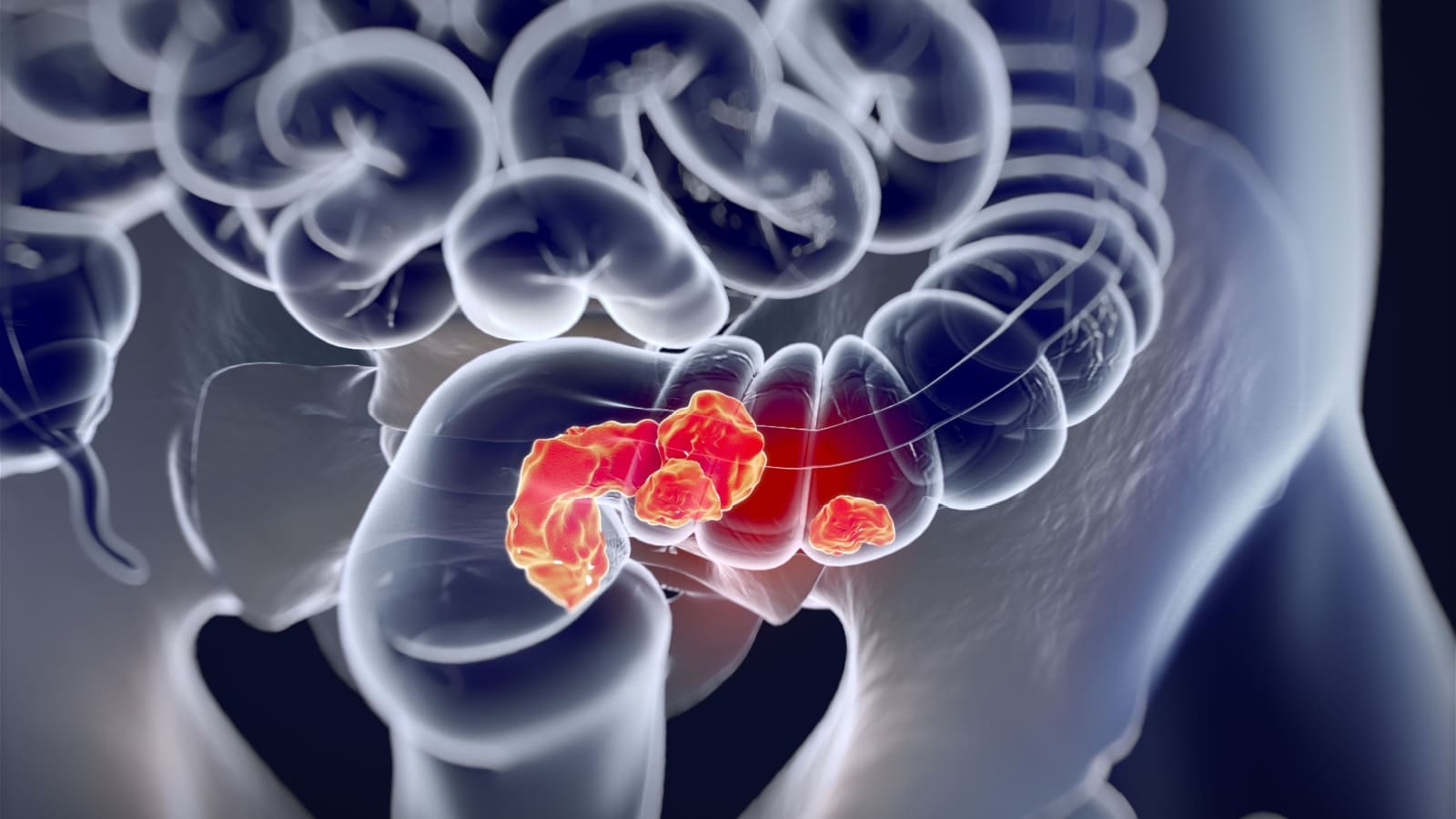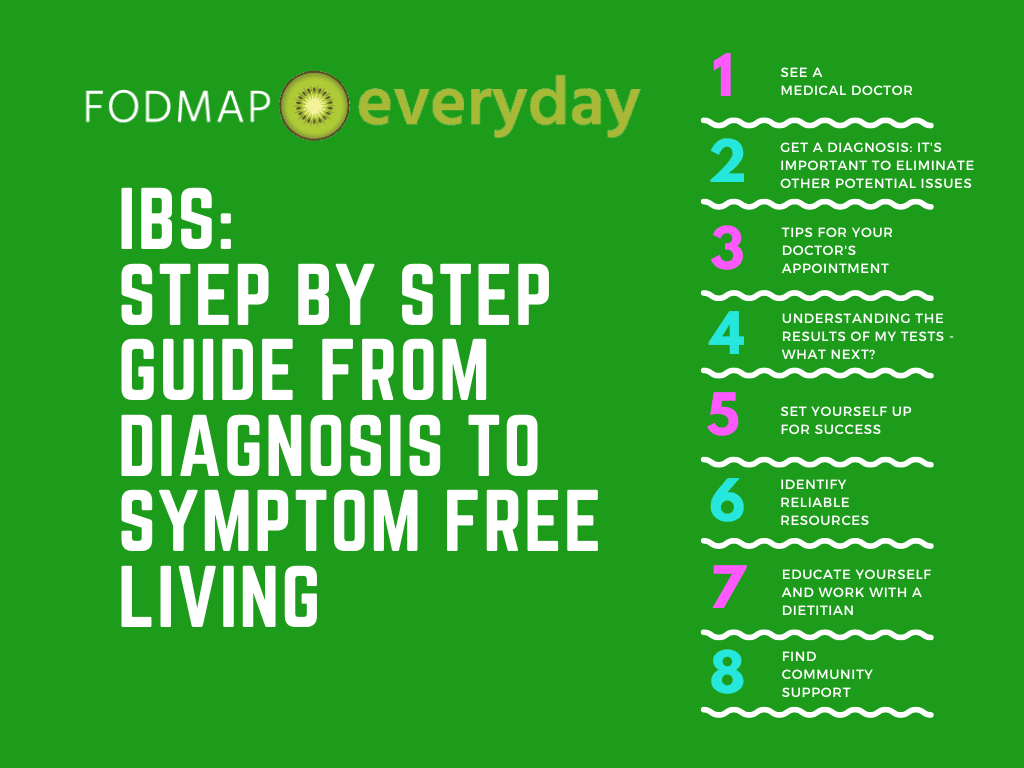This general guide examines the various aspects between Irritable Bowel Syndrome (IBS) and Colon Cancer, focusing on symptoms, diagnostic methods, and the importance of seeking medical attention for accurate assessment and management. There are overlaps of symptoms, and you should never try to self-diagnose.
For an in-depth understanding of colorectal cancer, please visit About Colorectal Cancer | American Cancer Society.
Key Statistics for Colorectal Cancer

Colorectal cancer ranks as the third most diagnosed cancer in the United States, excluding skin malignancies. Estimated statistics for 2024 include:
- Approximately 106,590 new cases of colon cancer, with a distribution of 54,210 in men and 52,380 in women.
- Roughly 46,220 new cases of rectal cancer, with 27,330 occurring in men and 18,890 in women.
Lifetime Risk and Mortality Trends

The lifetime risk of developing colorectal cancer stands at approximately 1 in 23 for men and 1 in 25 for women. Despite advancements in screening and treatment modalities, colorectal cancer remains a significant contributor to cancer-related mortality. In 2024 alone, an estimated 53,010 deaths are anticipated.
Understanding Symptoms of IBS

Irritable Bowel Syndrome (IBS), a chronic condition affecting the small and large intestines, manifests through various symptoms, including changes in bowel habits (in both frequency and form), such as constipation or diarrhea, alongside:
- Abdominal discomfort
- Bloating
- Excessive gas
- Sensation of incomplete bowel movements
- Presence of mucus in stool
While certain factors, such as diet, stress, or hormonal fluctuations, can exacerbate symptoms, individuals can typically manage these manifestations through lifestyle adjustments, such as the low FODMAP diet, and gut-directed hypnotherapy.
Colon Cancer Symptoms: Recognizing Warning Signs

Please note that some IBS and colon cancer symptoms are the same, but colon cancer does present distinctive symptoms, including:
- Abdominal pain or cramping
- Alterations in bowel habits
- Presence of dark stool
- Fatigue
- Incomplete bowel movements
- Rectal bleeding (red flag symptom)
- Unexplained weight loss (red flag symptom)
- Bloody stool (red flag symptom)
- Presence of mucus in stool
Immediate medical consultation is imperative upon experiencing any of the red flag symptoms, given the potential gravity associated with colon cancer.
Diagnostic Approaches for IBS

Diagnosing IBS entails a thorough assessment of medical history, encompassing factors such as recent infections, medication use, dietary and symptom patterns, and familial predispositions. A physical examination supplemented by blood and stool tests aids in ruling out alternative conditions, including celiac disease and inflammatory bowel disease. Rome IV criteria for IBS will be used, and some imaging might be called for as well.
ROME IV criteria states there must be “recurrent abdominal pain on average at least 1 day/week in the last 3 months, associated with two or more of the following:
- Related to defecation
- Associated with a change in frequency of stool
- Associated with a change in form (appearance) of stool
Colon Cancer Screening: A Crucial Preventive Measure

Given the seriousness of colon cancer, screening procedures play a pivotal role. Colonoscopy, a cornerstone diagnostic tool, facilitates the detection and removal of precancerous polyps, thus averting disease progression. Additional tests, including imaging studies and tissue biopsies, contribute to comprehensive evaluation.
Mucus in Stool: Interpretation and Implications

Both IBS and colon cancer can lead to mucus in stool. However, distinguishing characteristics such as stool color and accompanying symptoms aid in differentiation.
Colon Spasms: Understanding Significance

Colon spasms, prevalent in both IBS and colon cancer, warrant careful consideration. While more common in the former, their co-occurrence with other red-flag symptoms necessitates thorough evaluation to rule out malignancy.
Emphasizing Proactive Healthcare

Timely screenings for colon cancer, typically commencing at age 45, serve as crucial preventive measures. Tailored screening protocols are recommended for individuals with heightened susceptibility due to familial history or predisposing factors.
Collaborative Care: Navigating Diagnostic Pathways

Navigating the complexities of gastrointestinal disorders requires collaborative engagement with healthcare providers.
Vigilance, proactive screening, and a nuanced understanding of symptomatology are indispensable in safeguarding gastrointestinal health.
The Takeaway

In conclusion, while IBS and colon cancer may present overlapping symptoms, a meticulous evaluation guided by comprehensive diagnostic modalities is indispensable in distinguishing between the two conditions.
Early intervention, suggested to begin at 45 years of age, coupled with proactive healthcare practices, serves as the cornerstone in mitigating the burden of gastrointestinal disorders and fostering optimal well-being.
For an in-depth understanding of colorectal cancer, please visit About Colorectal Cancer | American Cancer Society.
Our co-author, Colleen Webb MS RDN, specializes in the intersection between IBS and IBD (inflammatory bowel disease). You can read more about her and her work HERE.
IBS: Step-by-Step Guide from Diagnosis to Symptom Free Living

How do you know if you have IBS (Irritable Bowel Syndrome)? If recommended, how do you know if the low FODMAP diet is appropriate for you? And how do you make sure that you are following the low FODMAP diet the best way possible? Read: IBS: Step-by-Step Guide from Diagnosis to Symptom Free Living







